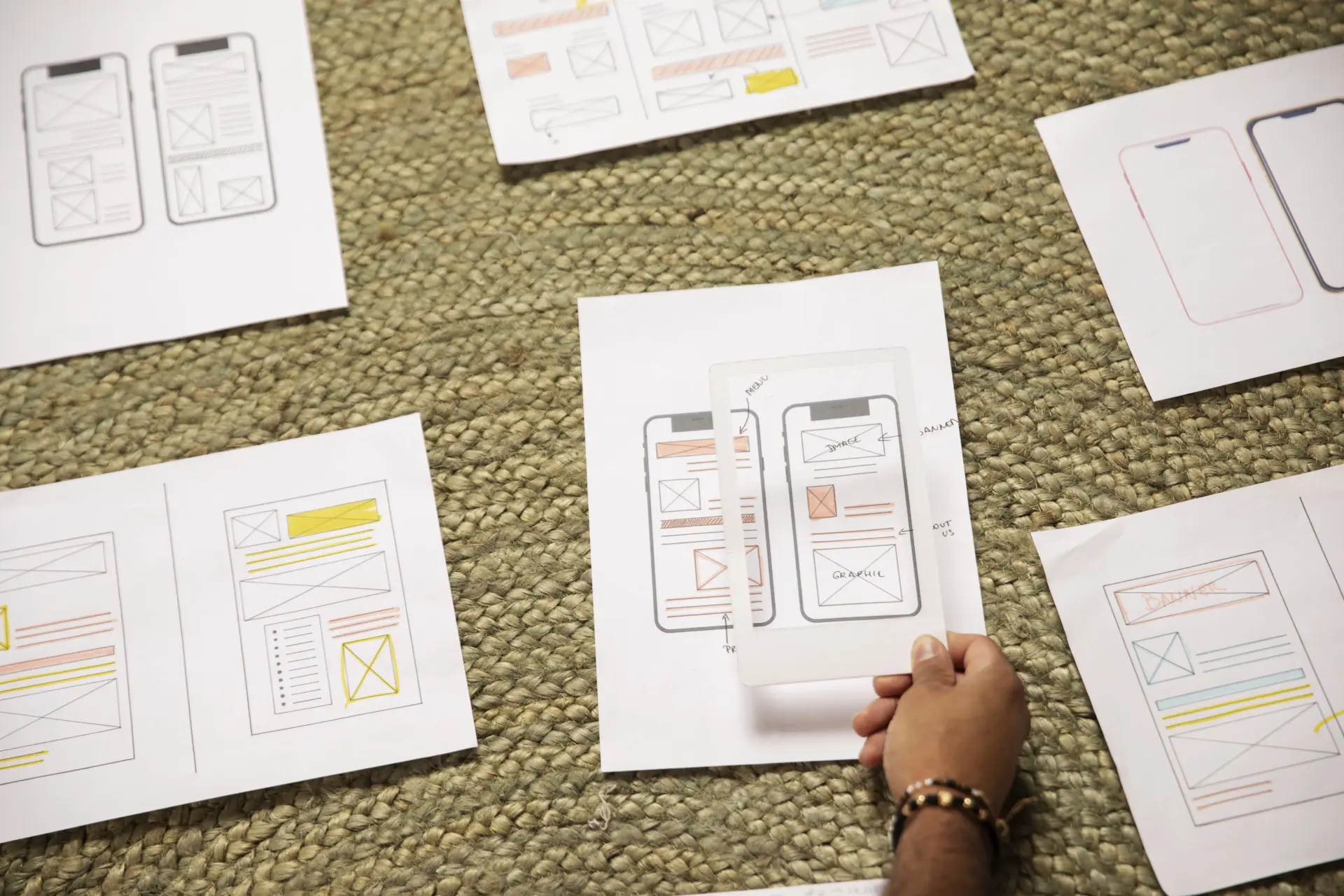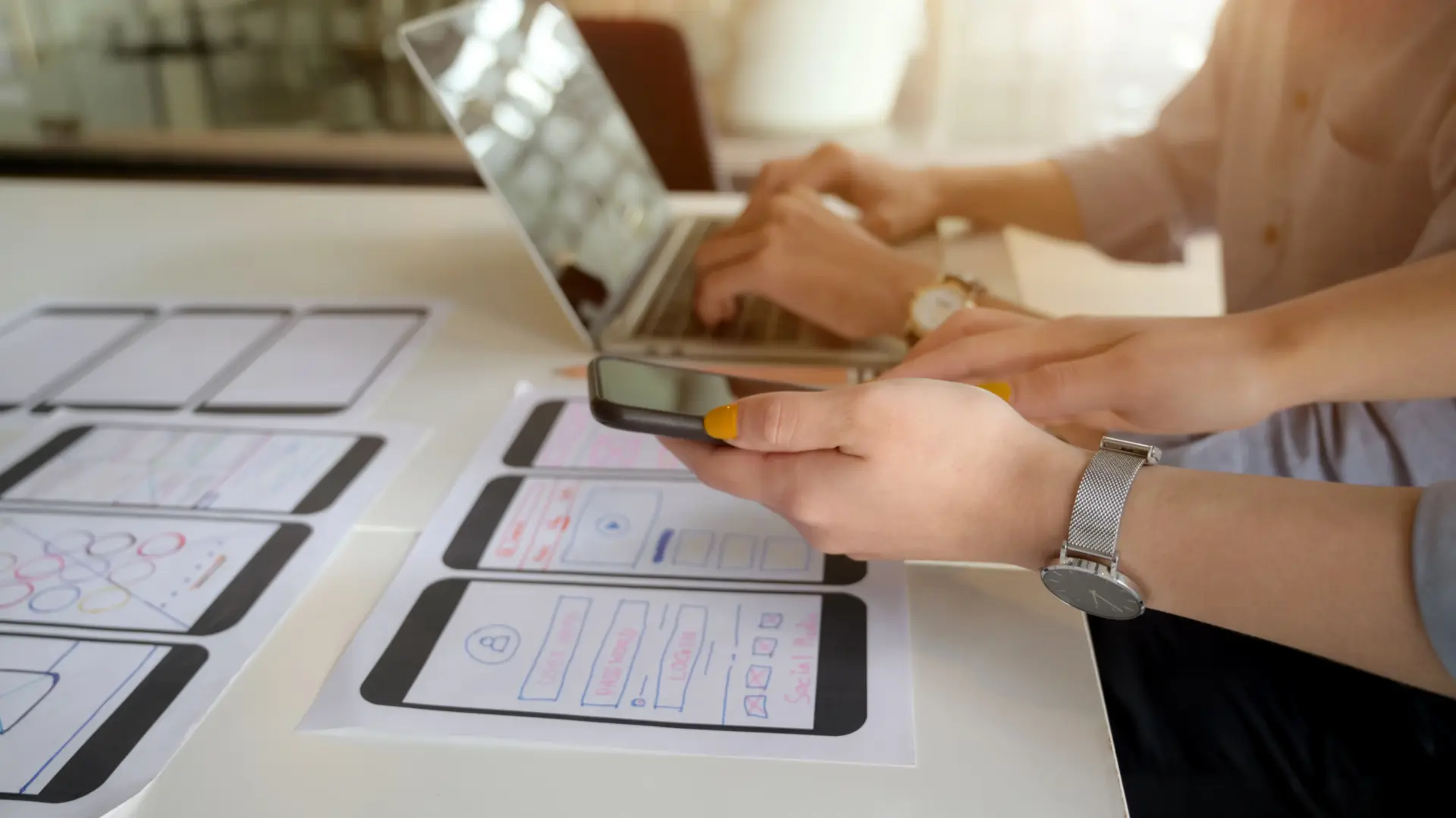
Android testing services
Our QA team builds the testing strategies around your development plan and chooses project-specific tools to ensure continuous improvement of your Android app at every development lifecycle stage.
Get the user’s view of the app across any device, network, or browser with our functionality, security, compatibility, and usability mobile application testing services.







12+Years in business
Large expertise as a software solution company
246Projects delivered
Engineering excellence that solves industry challenges
98%Client satisfaction
Customers trust us with new projects
92%Senior talent
Top software engineers on our team
96%Employee retention
We ensure team stability

Our QA team builds the testing strategies around your development plan and chooses project-specific tools to ensure continuous improvement of your Android app at every development lifecycle stage.

We use various emulators, simulators, and other tools in the testing environment to mimic the real user and manually assess the app’s functionality and performance while focusing on UI/UX.

Our QA specialists involve real users to test your app’s usability. We prepare the assessment documentation and collect feedback to identify areas that need improvement, optimization, or upgrade.

Get detailed testing reports on every performance aspect of your iOS app, and make fact-based decisions to optimize your app and provide your clients with the mobile experience they expect.

We run hardware tests to assess the performance of device sensors and hardware components for you to understand the device possibilities and limitations and predict app compatibility.

Our load and performance application testing services allow you to estimate the server response time under heavy user flow, define resource utilization, and see optimization needs and opportunities.
We offer our app testing services for developing, integrating, or updating stages to help you continuously evaluate and improve the app’s functionality.
Relevant has assembled QA teams of high-skilled specialists that enjoy various in-house opportunities for career advancement and personal growth.
Our mobile app testing company hires testers with hands-on experience in automated and manual testing to guarantee clients exceptional service quality.
An assigned PR will oversee the testing process from planning through reporting and update you on project progress, to-do list, and completed tasks.
90% of our clients are satisfied with our mobile testing services, so they recommend our company and hire our engineers again for other projects.
We use platform-specific test management tools to ensure smooth testing processes at every stage and identify at-risk areas to work with further.
Ensure flawless performance with expert mobile app testing services.




















A mobile app testing service is the process of testing the applications designed and produced for mobile devices to check their performance, functionality, usability, compatibility, and consistency. The testing is usually involved in every development stage (especially for the teams following the agile approach), or it can be arranged before production. Mobile app testing aims to identify errors in code, integration, architecture, network interaction, and design before production to ensure impeccable end-user experience, high engagement, and compliance with the app market requirements.
Before publishing the app on the app store or integrating it with the website, companies need to ensure that every feature works perfectly on various devices. Testing also allows us to assess the quality of user experience and point at what should be changed to improve the disadvantages before the user notices it. Our testing team does exactly that. Whether it’s a testing of the whole app or integration testing of a newly-added tool or feature, our testers will ensure that your app is ready for use.
Our mobile testing company identifies 6 major testing stages: requirement analysis, test planning, test design, testing environment setup, test execution, and reporting. We follow this 6-step approach for functionality, real-environment conditions, and non-functional testing to analyze the app’s performance and its impact on the users and the development process down the line.
The testing project duration depends on various factors, such as test type (manual, automated, combined), app’s complexity, and peculiarities (physical or cloud server). It also depends on what needs to be tested (functionality, hardware compatibility, security, usability, interoperability, etc.). Generally, the testing process can take from 3 weeks to 2-3 months.
There are plenty of challenges that the app testing company should consider and navigate through to run a quality test. For example, device fragmentation is one of them (the number of devices and OS versions is plenty, which is why it may take a lot of time). Plus, they have different screen resolutions, so the more models and devices are produced, the more tests need to be run.
Next, different types of apps (native, cross-platform, web, PWA) should be tested separately for the same performance indicators. For example, if you develop native apps for both Android and iOS, be ready to double the budget.
The testing team should also keep in mind that they’re working with high-speed Internet, which isn’t always the case with the end users. This is why they need to understand what would be resource distribution and performance in not-so-perfect conditions. It leads us to another challenge: no emulators give the true feel of the app functionality under real-life conditions. This is why the team should run UI/UX tests with real users and collect as detailed feedback as possible.
Our project manager will always provide you with updates on your project weekly or as scheduled. We use the Jira management service system to plan and discuss the project stages, assign new tasks, and track progress. You will have access and assigned role-based access to review the project whenever you like, receive project-related notifications, and communicate with every team member.
The cost of mobile app testing services depends on your project’s testing method and tools. For instance, automated testing costs less, but it gives you an overview of the functional aspects rather than the usability and experience. On the other hand, manual testing is more expensive, but you will get real user feedback on how the app performs in a real-life setting. The desired project duration also influences the cost.
Our mobile application testing company has land-based offices in Poland and Ukraine, though we work and hire experts worldwide. This approach allows us to provide quality services to companies from various industries and comply with data storage and processing requirements. Our staff features over 150 talents qualified in various technologies. We have completed over 200 projects for small, medium, and large businesses from different countries. Some of them you can see on our “Case study” page.
We use the same pricing model for our mobile application testing services as for other services that we provide. This model is based on the time we spent and the resources we used. We change our clients biweekly and send invoices with detailed descriptions of the completed tasks.
